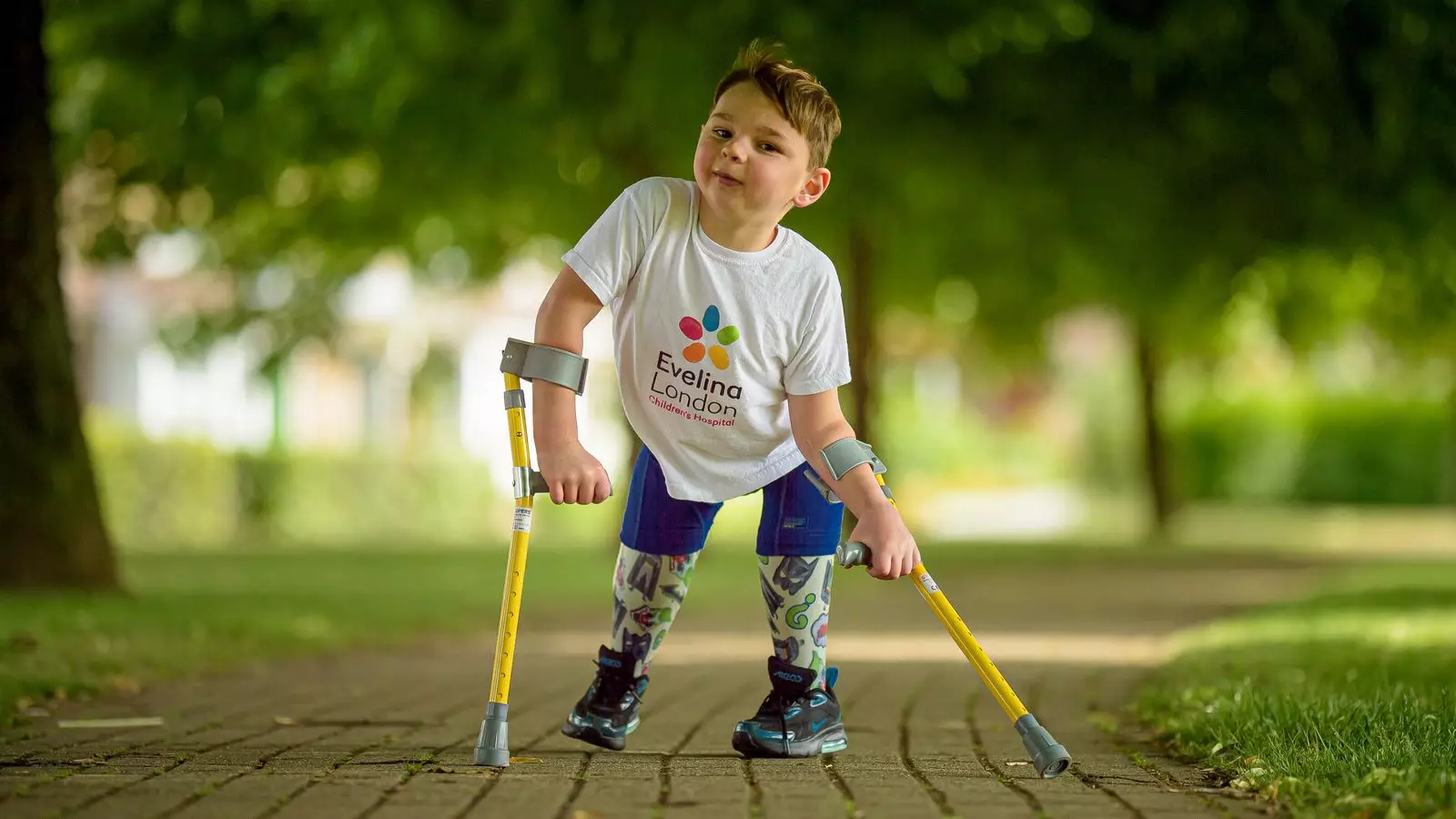The recent decision to release Jody Simpson, a mother who mercilessly tortured her infant son, has ignited a firestorm of outrage across the United Kingdom. Simpson, who was convicted alongside Anthony Smith for the heinous abuse of their son Tony Hudgell, had her original 10-year sentence cut short by the Parole Board. This release comes as a staggering insult to the resilience of her young victim, who has made astonishing strides despite having to live with the lifelong consequences of her abuse. The case raises troubling questions about our justice system’s priorities in punishing and ultimately rehabilitating child offenders.
Tony Hudgell’s ordeal began when he was merely 41 days old. Suffering under the hands of his biological parents, he endured unimaginable injuries—including multiple fractures and severe trauma—that necessitated the amputation of both legs. It’s a horror unimaginable to most, but for Tony, it’s a reality. The contrast between his ongoing struggle and the prospect of Simpson’s early freedom underscores a deep moral failing within our judicial system. How can a justice system deem someone fit for release after committing such an unforgiving act against an innocent child?
The Public’s Outcry
Public sentiment has been overwhelmingly in favor of stricter punishments for child abusers since Tony’s case came to light. The widespread anger culminated in “Tony’s Law,” a proposed piece of legislation meant to ensure that child abusers face life sentences. This is not just a response to the public’s outcry; it reflects a moral imperative. When it comes to protecting the most vulnerable in our society, in this case, children, our legal framework should operate on a zero-tolerance basis. The implications of child abuse reach far beyond the immediate injuries; they ripple throughout the victim’s entire life, leading to emotional and psychological scars that may never heal.
In her powerful social media post, Paula Hudgell—the adoptive mother who has stepped in to provide Tony with the love he desperately needed—eloquently expressed her grief and anger over Simpson’s early release. Her statement captures the anguish felt by many: “Tony has lifelong injuries every day he suffers due to her hands.” How can we expect justice to be served when the very system designed to protect the populace appears willing to release someone who has inflicted so much pain on an innocent child?
The Role of the Parole Board
The Parole Board’s justification for Simpson’s release raises further concerns. The board’s focus on whether a prisoner poses a manageable risk to the community sounds detached and clinical, reducing complex human suffering to mere statistics. The board claimed to have conducted a thorough review that included examining evidence of behavior change and the impact of the crime. Yet, how can one measure meaningful “behavior change” in an individual who orchestrated such barbaric acts against her own child? The decision feels not just misaligned but utterly tone-deaf to the realities faced by survivors like Tony.
There lies an ethical dilemma here. The Parole Board’s responsibility is to ensure public safety, a noble intent; however, are they genuinely safeguarding the future for those who have suffered? The tone around child abuse cases should be one of sympathy towards the victims and a stern, uncompromising stance against the perpetrators. The very fact that Simpson has been awarded early freedom casts a shadow over our commitment to protect the innocent.
Moving Forward
The release of Jody Simpson should serve as a wake-up call for all of us. Child abuse cannot and should not be viewed through a lenient lens. It is not merely a crime; it is an atrocity that tears at the very fabric of our society. As advocates for children’s rights, we must continue to voice our dissent against leniency in such cases. Stronger laws and protections are needed to ensure that the safety of children always comes first.
Ultimately, we bear the moral responsibility to ensure that acts of atrocity, like those committed by Simpson and Smith against Tony, are met with appropriate punishment, not an early ticket back to freedom. The memory of Tony’s horrific experiences must guide us toward principled reforms that prioritize the protection of our most vulnerable citizens. The fight for justice, against a backdrop of systemic failures, is our challenge moving forward.


Leave a Reply